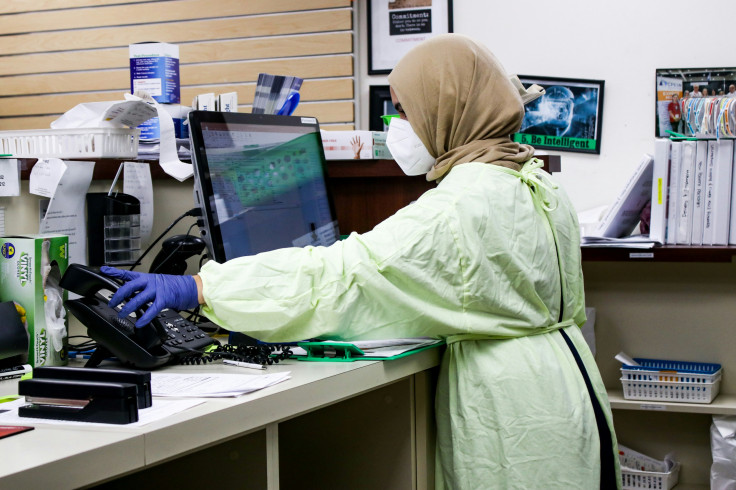Transforming Healthcare: The Role of Automation in Business Workflow Management
Tools such as Clinical Decision Support Systems and Intelligent Automation play a pivotal role in refining diagnostic processes

In today's world, where precision and efficiency are critical, the healthcare sector increasingly embraces automation to optimise business operations.
Automation reshapes healthcare delivery by addressing persistent inefficiencies in administrative and clinical domains. This discussion delves into healthcare automation's development, uses, advantages, and hurdles, emphasising its role in improving patient care and streamlining operations.
Development of Automation in Healthcare
Automation in healthcare has come a long way. Initially centred around simplifying administrative tasks like document management, its scope has grown significantly with technological advancements. Modern tools such as Clinical Decision Support Systems (CDSS) and Intelligent Automation (IA) now play a pivotal role in refining diagnostic processes, enhancing efficiency, and fostering better patient engagement. This progression mirrors the healthcare industry's broader commitment to harnessing technology for superior outcomes.
Additionally, integrating robotics and artificial intelligence has further revolutionised healthcare automation. Robotic systems are increasingly used in surgical procedures, ensuring greater precision and reducing recovery times, while AI-driven algorithms enable the early detection of diseases through predictive analytics. These innovations not only improve clinical outcomes but also help in addressing workforce shortages by taking over repetitive or labour-intensive tasks, allowing healthcare professionals to focus on patient-centric care.
Applications and Benefits of Automation in Healthcare
Automation plays a vital role across various aspects of the healthcare industry, offering transformative solutions to longstanding challenges. In revenue management, automated systems streamline billing and payment processes, reducing errors and improving cash flow efficiency. Diagnostic and therapeutic automation leverages data-driven insights to enhance the precision of diagnoses and treatment plans, improving clinical outcomes.
Workflow automation further boosts operational efficiency by automating routine tasks, enabling healthcare professionals to dedicate more time to patient care. Additionally, chatbots have revolutionised patient interaction, facilitating timely communication, providing essential information, and improving patient engagement. These diverse applications optimise healthcare operations and significantly enhance the patient experience.
The benefits of automation in healthcare are equally compelling. Automation increases efficiency by reducing the time spent on manual tasks, allowing providers to focus on delivering quality care. It enhances accuracy by minimising human errors in diagnostics and treatment, resulting in more reliable outcomes.
Automation drives cost savings by streamlining processes, benefiting healthcare organisations and patients. Moreover, automated systems aid in maintaining regulatory compliance, such as adherence to HIPAA guidelines, thereby reducing risks and ensuring smooth operations. Together, these advantages underscore the transformative potential of automation in advancing healthcare delivery.
Ethical, Legal, and Implementation Challenges of Automation in Healthcare
While automation offers significant advantages in healthcare, it also presents ethical, legal, and implementation challenges that must be carefully managed. One critical concern is ensuring the accuracy and reliability of automated systems, as errors in these processes could jeopardise patient safety. Rigorous testing and validation are essential to prevent such risks.
Legal considerations, including compliance with intellectual property laws and publishing agreements, further complicate the integration of automation technologies. Additionally, fostering trust among healthcare professionals is vital. Transparent decision-making and human oversight ensure these systems are used effectively and responsibly.
Implementing automation has obstacles. Resistance to change among healthcare staff can slow the adoption of new technologies, while the high initial costs and complexities of deployment create financial and logistical barriers. Comprehensive training programs and clear communication about the benefits and limitations of automation are necessary to overcome scepticism and build confidence. Addressing these challenges is crucial to ensure that automation is implemented in a manner that is ethical, effective, and aligned with the needs of both providers and patients.
An Outlook for Automation in Healthcare's Workflow
The horizon for automation in healthcare workflow management is bright, with ongoing advancements in Intelligent Automation, Health IT, and data-driven technologies promising to elevate efficiency, safety, and care quality to unprecedented levels. The synergy between clinicians, regulatory authorities, and technology innovators will be crucial in unlocking automation's full potential. By fostering collaboration, the industry can ensure that these advancements bring tangible value to every aspect of the healthcare ecosystem.
Moreover, integrating emerging technologies such as artificial intelligence, machine learning, and blockchain is expected to revolutionise healthcare further. AI and machine learning can enable predictive analytics for disease prevention, while blockchain offers secure, transparent data-sharing solutions, addressing privacy and interoperability concerns. As these technologies mature, they will pave the way for more personalised, patient-centric care and greater operational agility, solidifying automation's role as a cornerstone of modern healthcare.
Automation offers a transformative pathway to overcoming persistent inefficiencies in healthcare workflow management. By adopting automated solutions, healthcare organisations can streamline operations, enhance patient outcomes, and realise substantial cost savings. However, successfully integrating automation requires careful consideration of ethical and legal challenges, fostering trust, and ensuring compliance with industry standards. As technology evolves, the healthcare sector is poised to enter a new era where automation drives innovation and improves patient care.
****
Sivasakthivel Periyannan Ramamoorthy is an automation leader and business strategist currently serving as Director of Automation at CVS Health, a Fortune 6 company. With over 17 years of experience, he has developed and implemented automation solutions that have significantly enhanced healthcare business workflows.
© Copyright IBTimes 2025. All rights reserved.






















